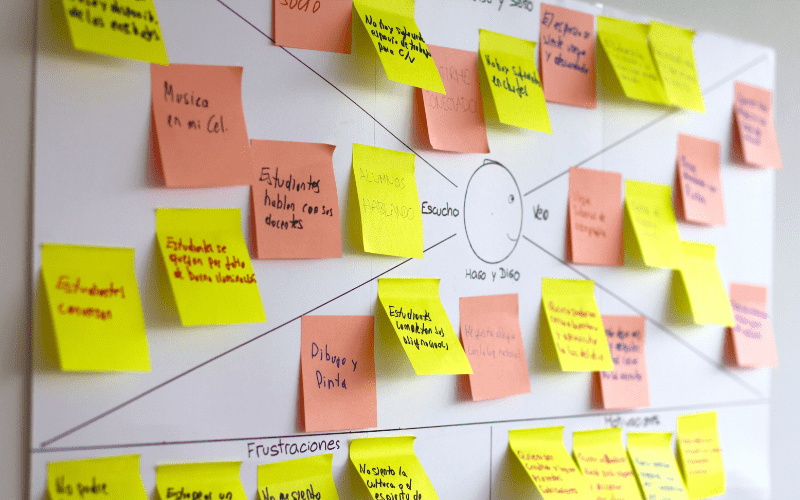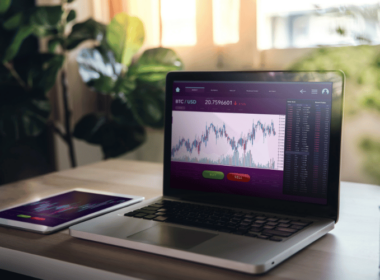A user experience workshop, or UX workshop, is an event or gathering where a group of experts, stakeholders, and users come together to discuss, brainstorm, and iterate on the user experience of a digital product or service.
The primary goal of a UX workshop is to identify and address the needs and expectations of users, ensuring that the product or service is user-centered and designed with their best interests in mind.
Key Reasons Why UX Workshops Are Paramount
User experience workshops are essential for various reasons:
- They provide valuable insights into user behavior and preferences, helping businesses create better products and services that cater to their needs.
- They foster collaboration and communication among stakeholders, designers, and developers, ensuring everyone is on the same page and working towards a common goal.
- They promote continuous improvement and innovation as users’ needs and expectations evolve, requiring businesses to adapt and stay up-to-date with the latest UX trends and best practices.
Impact of UX Workshops on Digital Transformation
In the context of digital transformation, user experience workshops play a critical role in driving the success and adoption of new digital technologies within organizations:
- By prioritizing user research and user-centered design, businesses can create digital platforms that are more intuitive, efficient, and enjoyable for users, leading to increased engagement and adoption of new tools and processes.
- UX workshops can help organizations identify and address potential pain points and challenges in their digital transformation journey, ensuring a smoother transition and minimizing the risk of failure.
- By involving users and stakeholders in the design process, businesses can ensure that their digital transformation initiatives are aligned with the needs and expectations of their users, making the transition more effective and sustainable in the long run.
Crucial Considerations Before Running a UX Workshop
Setting Clear Objectives for the Workshop
Before organizing a user experience workshop, it’s crucial to determine the objectives you want to achieve. This could involve understanding user needs, generating design ideas, or refining existing solutions.
By defining the goals, you can tailor the workshop to address specific challenges and ensure that the outcomes align with your desired user experience.
Selecting the Ideal Participants
Selecting the appropriate participants is essential for a successful user experience workshop. Consider including stakeholders from various departments, such as product management, UX design, and engineering, to foster cross-functional collaboration.
Additionally, consider inviting potential users to provide valuable insights and feedback. The right mix of participants will contribute to a diverse and productive workshop.
Choosing a Suitable Format for the Workshop
Preparation Steps for a Successful UX Workshop
This section will discuss the three main steps to prepare for a successful user experience workshop.
These steps include developing a comprehensive agenda, securing necessary tools and materials, and providing pre-workshop reading materials or tasks.
Crafting a Detailed Workshop Agenda
To start, you need to define the goals and objectives of your user experience workshop. What do you want to achieve? What problems do you like to solve? Focusing on specific goals and objectives can help ensure that your workshop is productive and successful.
Once you have set clear goals, you can create an agenda that outlines the activities and discussions that will take place during the workshop. This agenda should be simple, clear, and well-structured to ensure participants feel confident and immersed in the tasks.
Gathering Essential Workshop Tools and Materials
Next, you must gather the necessary tools and materials for your user experience workshop. This may include cables, dongles, other technical equipment, and any documents, resources, or research materials that may be needed during the session.
All these items must be ready before the workshop begins to ensure a smooth and efficient experience for all participants.
Assigning Pre-workshop Assignments and Readings
Finally, consider providing pre-workshop reading materials or tasks to help participants come prepared and ready to engage in the workshop activities. These materials can include research reports, issues, or epics and highlight reels of relevant research clips.
By providing context and resources in advance, you can help participants understand their roles and how they can best support the workshop’s objectives, leading to a more successful user experience workshop.
Running a UX Workshop: A Step-by-step Guide
To kick off the user experience workshop, start with icebreaker activities and initial presentations to create a comfortable atmosphere and set the foundation for the session.
Begin by introducing the workshop’s goals and objectives, followed by brief presentations from team members or stakeholders to provide context and background information. This helps participants understand the workshop’s purpose and sets the stage for productive discussions.
Encouraging Interactive Sessions and Group Tasks
Following the initial presentations, dive into interactive sessions and group activities designed to generate ideas, solve problems, and develop user empathy. These activities can include brainstorming sessions, user persona creation, and empathy maps.
Encourage open dialogue and collaboration among participants and ensure that everyone has a chance to contribute their ideas and perspectives. By engaging in these activities, the group can identify potential solutions and prioritize the most promising ones for further exploration.
Facilitating Open Discussions and Debriefing Sessions
Activities After the Workshop and Follow-up Actions

After conducting a user experience workshop, it is crucial to evaluate its success and identify areas for improvement. This can be done by gathering feedback from participants and stakeholders, reviewing the outcomes, and reflecting on the workshop’s effectiveness in achieving its goals.
By assessing the workshop’s success, you can make necessary adjustments for future workshops and ensure they continue to provide value to your team and project.
Recording Valuable Insights and Acquired Lessons
During a user experience workshop, it is essential to document the insights, ideas, and lessons learned. This can be done through various methods, such as taking notes, creating visual aids, or recording discussions.
Documenting the workshop’s outcomes helps to ensure that valuable information is preserved and can be easily shared with team members, stakeholders, and future workshop participants. Additionally, having a clear record of the workshop’s progress can inform future workshops and UX projects.
Conclusion
Participating in a user experience workshop is critical for understanding the needs and preferences of your users. Not only do these workshops provide valuable insights into user behavior, but they also foster a culture of collaboration and continuous innovation.
Turning to insights.codewave.com can provide information on user experience workshops and more. As a platform emphasizing design thinking and digital transformation, it offers numerous insights across categories like technology, design, and culture.
By exploring insights.codewave.com, you maximize impact in your field and innovate and create value in your respective industry. So, if you’re interested in mastering user experience workshops and more, keep reading insights.codewave.com.








